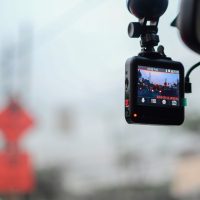Innovations in Evidence: Dash Cameras, Artificial Intelligence, and Autonomous Vehicles in Personal Injury Cases

Advances in technology have changed the way that a car accident claim could unfold. Although the general legal requirements remain the same, there may be additional ways of proving what the other driver did in the circumstances leading up to your crash. Complex technologies can also present evidentiary issues. This article provides additional information on how technology can impact car accident claims.
Dash Cameras
Dash cameras can help protect you in the event of an accident. These devices record video footage (and sometimes audio) as your car is in operation. They may be able to show both what you and the other driver did immediately prior to the accident. If you have video footage of another driver’s actions, you may be in a better position to prove that the other driver caused the crash. Generally, you can also use this footage in court. Dash camera footage is particularly useful in cases where there were no witnesses or where the damage to the vehicles doesn’t provide enough clarity to show exactly what happened.
If you are in a car accident and you have a dash camera, you should take steps to preserve this evidence immediately after the crash. Additionally, you should confirm if the other driver or any witnesses have dash camera footage and take the steps to obtain a copy of the footage and the contact information for the witness.
Artificial Intelligence
Like everything else in society, artificial intelligence (“AI”) is prevalent in car accident cases. Specifically, many insurance companies rely on AI in processing insurance claims. They most commonly use AI-based programs to analyze and evaluate damage to vehicles. These systems rely on photographs and historical property damage claim information for comparison. The AI program uses this information to predict vehicle values and repair cost estimates. Some insurance companies also use AI for bodily injury claims.
As can be expected, these programs are imperfect and can result in inadequate, inaccurate, unreliable, and biased claims evaluations. Having a lawyer who will stand up to the insurance companies and their AI programs is an invaluable tool.
Autonomous Vehicles
The number of autonomous (and semi-autonomous) vehicles being manufactured and those that are already on the roads is growing. Although these cars have been promoted as reducing or eliminating driver error, they may still result in serious car accidents. Some versions of these vehicles do not require a driver at all, while others have self-driving features that are turned on and/or off by the driver.
If you have been involved in an accident with an autonomous or self-driving vehicle, it may not be clear who is at fault. If there was a driver in the vehicle, that driver may have done something to cause the crash. This could range from the way the driver handled the vehicle just prior to and at the time of the crash, or even failing to get the vehicle serviced properly. Additionally, the vehicle manufacturer may be liable if there was an issue or malfunction with the vehicle itself.
Because these types of cars are still relatively new, the laws that apply to these types of crashes are still developing. Autonomous vehicles present many complicated legal issues. When you are involved in a crash with an autonomous or self-driving vehicle, It is important to speak with an attorney as soon as possible to help understand your options and potential legal paths forward.
Contact a Vancouver Car Accident Law Firm Today
If you have been injured in a motor vehicle crash, you can reach out to the lawyers at Schauermann Thayer by filling out an online contact form or by calling us today at (360) 818-2725.

